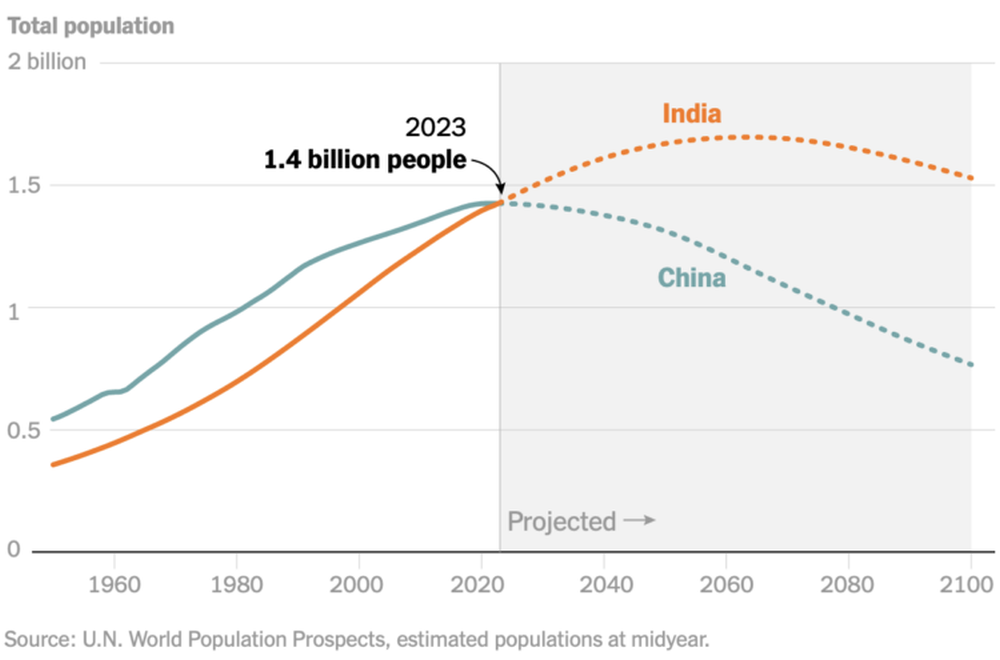China’s shifting demographic landscape marks a pivotal moment in global geopolitics. With India poised to surpass China in population size, traditional notions of power dynamics are being redefined. While China has long been regarded as a dominant force, its shrinking population presents a significant challenge to its future influence. This demographic decline, coupled with resource scarcity, underscores the complexities of China’s geopolitical aspirations.

The implications of China’s demographic shift extend beyond its borders. As China’s population declines, other nations like India experience growth, altering the balance of power in key regions. This dynamic prompts a reassessment of strategic alliances and geopolitical strategies, particularly in the Indo-Pacific region. Moreover, it underscores the importance of understanding demographic trends in shaping global power dynamics.

In navigating these challenges, the role of Western nations, particularly the United States, is paramount. By leveraging technological advancements, military capabilities, and strategic alliances, Western countries can mitigate the impact of China’s demographic constraints on global stability. As the geopolitical landscape continues to evolve, proactive engagement and cooperation will be essential in addressing the complex interplay of demographic shifts, resource scarcity, and geopolitical ambitions.

China’s shrinking population presents both challenges and opportunities for global geopolitics. As demographic trends reshape power dynamics, proactive engagement and strategic cooperation will be crucial in navigating the complexities of the 21st-century geopolitical landscape.

